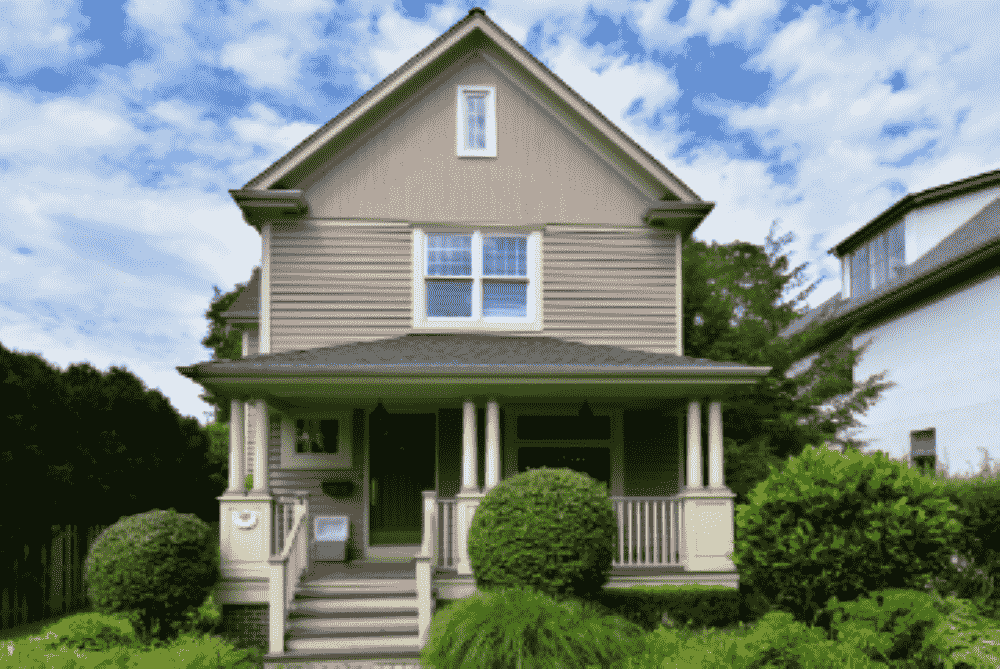
Unlike auto insurance, homeowner insurance requires tons of information! You need measurements from your home, details about its construction, and information about any extras like detached buildings, swimming pools, or trampolines.
Have you ever wondered why the insurance company needs so much information to get you a quote?
The primary reason insurance companies need to know so much about your home is that they determine your rates based on your home’s replacement.
They calculate what it would cost to replace your home in the same location with the same materials at the same size with the same quality of construction. This is what is meant by replacement cost.
And while replacement cost is the primary factor insurance companies look at, it’s not the only factor.
So let’s consider all of the primary factors that determine your homeowner premium costs. The three main areas that insurance agents look at when they price out your policy are:
- Your Home
- Fire Risks
- Personal History
For the past 20 years, I have been collecting this kind of information from customers, submitting the information to insurance companies, and preparing homeowner quotes. And in all those years, the insurance companies still use these same factors to determine what they will charge you for your policy.
Your Home
When you apply for homeowner insurance, your insurance company will need to know the following about your home:
- Square footage
- Age
- Type of Construction
- Exterior Features
- Interior Features
- Zip Code
1. Square footage
Your insurance company will want the square footage of every part of your home. While the insurance company will charge less for spaces like unfinished basements and garage space, they will still use these spaces’ footage to arrive at your final premium.
You will also need to include any “outbuildings” on your property. So if you have a detached garage or shed on your property, you’ll need to include those on your policy as well.
In general, the rule is the greater the home’s square footage, the more expensive the premium.
2. Age
You will need to provide information on when your home was constructed. It may surprise you that older homes often have a higher replacement cost, resulting in a higher premium amount. The reason for this is it may be more costly to replace damaged materials in an older home. Often these materials are not as readily available.
3. Type of construction
Do you live in a framed home? Brick home? Log home? Your insurance premium will differ depending on the type of construction; again, this is all due to replacement costs!
- Frame Homes
These are the cheapest to insure because the construction costs associated with frame construction are generally less expensive than other construction types.
- Brick Homes
Brick homes fall somewhere between frame and log homes in terms of insurance costs. However, one benefit of brick is that brick homes often receive a discount for added fire protection.
- Log Homes
Just as log homes are the most expensive to build per square foot, they are also the most costly to insure.
4. Exterior features
Your insurance company will also want details on the exterior of your home.
- Is it sided?
- How old is the roof?
- How old are the windows?
If your home has not been updated in a while, you may expect that your insurance will cost a little more. Again this is due to replacement costs of the materials currently used on your home.
5. Interior features
Finally, the insurance company will need to know about any custom features to your home, flooring type, and the type of cabinetry. If you have expensive features on the interior of your home, your insurance premiums will reflect those features.
6. Zipcode
Believe it or not, insurance companies rate houses differently depending on their location. That means you could have the exact same house but pay different insurance rates depending on where that house sits.
The impact your location has on your insurance premiums can vary greatly depending on the insurance company. This is one reason independent insurance agents have an advantage in the insurance marketplace.
Independent insurance agents can price your policy out with several different insurance companies at one time. This is a quick way to see which companies are giving the best rates for your location.
In terms of zip code, one factor that insurance companies consider is your distance to local fire and police services. The closer you are to these kinds of services, the lower your rates will most likely be.
Amount of Risk
One risk that insurance companies take a serious look at is the potential risk for homeowner claims. Here they evaluate your:
- Protection Class
- Fire Hazards
- Other Hazards
1. Protection Class
Each insurance company will place your home into a protection class. This class is determined by your home’s distance to a fire department and the closest fire hydrant.
For most homeowners who live in a town, their fire protection class will be excellent.
Insurance companies give the best rates to homes that are less than 5 miles away from a fire department. And they also provide better rates to homes that sit less than 1,000 feet from a fire hydrant.
2. Fire Hazards
Your insurance company will also want to know if you heat your home with a wood-burning stove or operate a wood-burning fireplace.
Because these hazards increase the possibility of a house fire, you can expect to pay a higher premium rate if your home has these features.
3. Other Hazards
Other hazards that can increase your insurance premium include swimming pools, hot tubs, and trampolines. Because these novelties pose a higher risk for a homeowner claim, your insurance policy will be a little more expensive.
Personal History
There are a few other details that your insurance company will consider when pricing out your insurance policy. These include:
- Your Credit History
- Previous Claims History
1. Credit History
Insurance companies want to know that you can pay for your homeowner insurance. After evaluating your credit history, your insurance company will rate your policy.
If you have issues with your credit history, you can expect to pay a higher premium.
In fact, one of the best ways to lower your premium is by improving your credit score.
2. Claims History
While insurance policies exist to provide for you if you have a homeowner issue, insurance companies are banking on the fact that most of their policyholders will not need to file large claims.
That being said, if you have had to file insurance claims in the past, your insurance rates could increase. Just one homeowner claim can increase the cost of your next insurance policy.
Because of this, some people weigh out whether they should file a homeowner claim or pay for the damage out of pocket. Your insurance agent may be able to help you make that kind of assessment.
When is the last time you priced out your homeowner policy?
One interesting thing about homeowner policies is that they increase minimally from year to year due to inflation. Often you can go several years without receiving a large rate hike.
And while it’s great that homeowner rates stay pretty consistent, it doesn’t mean there aren’t other policies out there that would give you the same or better coverage at a better price.
At Baily Insurance Agency, we recommend that our customers check in at least every two years to see if:
1, They would qualify for any discounts on their policy.
or
2. If another insurance company would write their policy at a better rate.
As an independent insurance agency, we write homeowner insurance with multiple companies like Travelers, Safeco., Progressive, and Donegal, just to name a few. And using our insurance rater tool, we can price policies with these various companies simultaneously.
And most of these companies add additional discounts for our clients who purchase more than one insurance policy with them.
At Baily Insurance Agency, we go to bat for our customers. We work hard to provide them with the coverage they want at excellent prices.
Insurance quotes are quick and easy and can often result in significant savings!
If you haven’t had your insurance quoted in a while, today may be a good day to give us a call and see how we can help you!
Related Articles:
What Does Homeowner Insurance Cover? Most Popular Questions Answered

